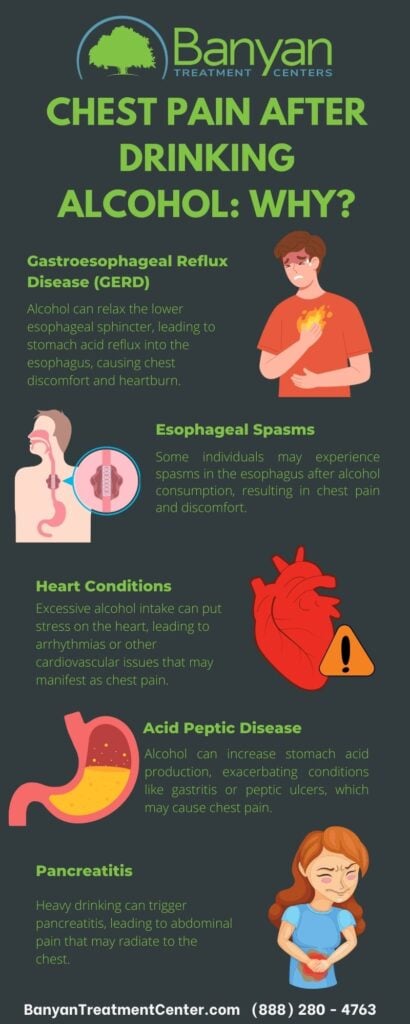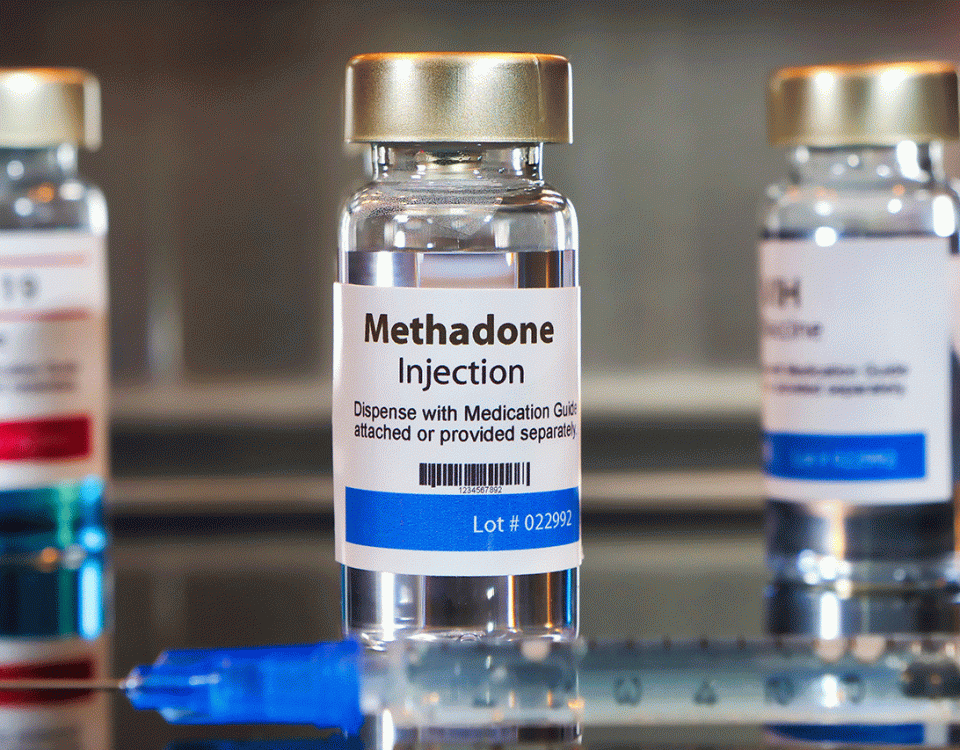Many people drink alcohol without overdoing it.
However, even one night of drinking can lead to worrisome side effects, including chest pains. If you’ve ever experienced chest pain after drinking alcohol, you aren’t the only one. Chest pain is a common symptom of heavy drinking, but why does it happen? If you’re experiencing these symptoms frequently, it’s best to avoid drinking completely or cut down significantly on your alcohol intake. However, for someone who’s struggling with an alcohol use disorder, this can be much harder than you think. Our addiction treatment centers share some common chest pain after drinking beer and other alcoholic beverages that you should avoid.
How Does Alcohol Affect the Heart?
Alcohol affects the heart by temporarily increasing heart rate and blood pressure. The heart pumps blood throughout the body via blood vessels, arteries, capillaries, and veins. As it flows, blood delivers nutrients and other materials to various parts of the body. When a person drinks alcohol, it’s absorbed by the stomach and intestine into the bloodstream and then released into different areas of the body. While a person is drinking, they may experience high blood pressure and heart rate. Although this can be temporary, people with alcoholism or habits of heavy drinking may suffer from long-term symptoms like high blood pressure, weakened heart muscles, irregular heartbeat, and more.
Can Alcohol Cause Chest Pain?
 Yes, alcohol can cause chest pain, but why does it happen? Well, alcohol causes chest pain because it increases blood pressure, which causes an irregular heartbeat (atrial fibrillation), which then reduces blood flow to the heart and causes chest pain (angina). Long-term use of alcohol and chest pain are also connected because heavy drinking can cause heart muscles to expand, weakening the heart and inhibiting its ability to pump. As a result, chest pain and heart disease can occur.
Yes, alcohol can cause chest pain, but why does it happen? Well, alcohol causes chest pain because it increases blood pressure, which causes an irregular heartbeat (atrial fibrillation), which then reduces blood flow to the heart and causes chest pain (angina). Long-term use of alcohol and chest pain are also connected because heavy drinking can cause heart muscles to expand, weakening the heart and inhibiting its ability to pump. As a result, chest pain and heart disease can occur.
Additionally, the expansion of heart muscles caused by prolonged drinking can also lead to a condition called alcohol cardiomyopathy. This is when expanded and weakened heart muscles put extra pressure on blood vessels, which could then increase the risk of heart failure and prevent the heart from pumping fluid throughout the body properly, leading to fluid build-up. Heavy drinkers and people with alcohol use disorders are at a higher risk of experiencing chest pain after drinking and other similar side effects. If you’re frequently experiencing these symptoms, then it may be a sign that you need alcohol detox and treatment at one of our Banyan rehab locations.
Heart Attack and Drinking Alcohol: Know the Symptoms
If your chest hurts after drinking alcohol, do not ignore it. Ignoring chest pain after drinking alcohol can have severe health implications, such as heart attack or stroke. It’s important to note the various symptoms of a heart attack, especially when drinking.
Some common symptoms of a heart attack while drinking include:
- Chest pain (this is the most common symptom - it usually feels like a crushing or tight pain that may move to the jaw or left side of the body)
- Pain in the upper neck, jaw, back, or arm
- Difficulty breathing
- Severe fatigue and weakness
- Nausea or vomiting
- Anxiety or fear
- Loss of consciousness
Whether your chest hurts after drinking alcohol or you’re just feeling unwell, contact your local medical professional for help. In case of a medical emergency, call 9-1-1 immediately.
Lifestyle Modifications for Alcohol Chest Pain
Making specific lifestyle changes is frequently necessary to manage chest pain that occurs after drinking. People may be able to reduce or eliminate the chest pain brought on by alcohol use by forming healthier behaviors and avoiding triggers.
Some positive lifestyle changes include:
- Drink less alcohol: Reasonable alcohol consumption is one of the best strategies to lessen chest pain brought on by drinking. Limiting alcohol intake can ease the burden on the digestive system and lower the likelihood of getting gastritis, acid reflux, and other alcohol-related illnesses that are known to cause chest pain. It's critical to define and adhere to personal limits to avoid consuming too much alcohol.
- Avoid trigger foods: Chest pain brought on by alcohol can be made worse by specific foods. Foods that are fatty, acidic, or spicy may increase the likelihood of feeling chest pain after drinking. To lower their likelihood of developing symptoms, those who are prone to chest pain should learn what meals they personally react to and avoid them.
- Quit smoking: It is strongly advised to stop smoking because it can exacerbate chest pain and worsen a number of cardiovascular and respiratory conditions. Smoking aggravates the lungs and airways, making it more difficult for the body to recover from any harm caused by alcohol.
- Keep a healthy weight: Weight gain can increase strain on the stomach, cause acid reflux, and worsen chest pain. The benefits of maintaining a healthy weight include greater mobility, improved bodily functions, and, as you may guess, reduced instances of alcohol-related complications.
- Elevate your head while sleeping: Chest discomfort after drinking may be caused by acid reflux. If this is the case, elevating the head of the bed as you sleep will help lessen the likelihood of chest pain by preventing the backflow of stomach acid into the esophagus. Consider purchasing a wedge pillow to help keep your head elevated throughout the night.
- Manage stress: Chest discomfort and other symptoms can be made worse by high levels of stress. You can experience this less frequently and severely if you find healthy ways to manage stress, such as practicing relaxation techniques. Some great techniques for relaxing include deep breathing exercises, meditation, or yoga, or partake in activities that make you happy and relaxed.
Alcohol can affect your liver, skin, and other areas of the body, in addition to your heart. People who are heavy drinkers or suffer from alcohol addiction may require a long-term treatment option to recover.
If this sounds like you or someone you know, Banyan Treatment Centers can help. Call us today at 888-280-4763 to learn more about our alcoholism treatment and what our addiction facilities can do for you.
Related Readings:




















